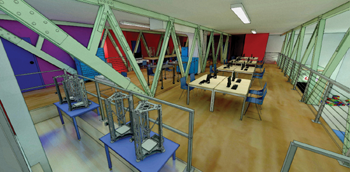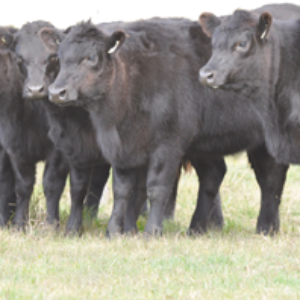Miles College has been awarded the funding it needs to launch a training program for meat processors through the Montana Meat Processing Infrastructure Grants.
A grant for $117,397 to assist with training and educating future meat processors at Miles Community College, Miles City, was among the $7.5 million Coronavirus Relief Funds awarded to numerous meat processing businesses in the state, announced by Gov. Steve Bullock and the Montana Department of Agriculture.
The Montana Meat Processing Infrastructure Grant (MMPIG) program is designed to aid small and medium-sized meat processors in responding to the COVID-19 crisis through the adaptation and advancement of meat processing infrastructure and capacity in Montana.
“The impacts of COVID-19 have highlighted how fragile the nation’s supply chain can be, especially when it comes to meat processing,” said Bullock. “It’s crucial that our producers have viable options for getting their meat to market. Investing in meat processing infrastructure will help our Montana producers, strengthen local food systems, and bolster food security for Montanans in communities across the state from Plains to Circle.”
Among applicants for the funding was a collaborative effort between the Montana Meat Processors Association, Miles City Community College (MCC) and the Montana Farm Bureau Federation (MFBF) to offer a meat processing certificate / degree at the college to help meet a chronic shortage of trained meat cutters in Montana. They applied for $150,000 to get the training program going, which they expect to cost $75,000 annually to maintain.
The grant program received a great deal of interest which reflects the necessity for increased in-state meat processing capacity. Businesses received funding for equipment and infrastructure, such as additional cooler or freezer space, slaughter floor enhancements, and other business adaptation and diversification activities that will increase processing and/or storage capacity related to local meat processing.
Funding for the MMPIG was derived from the state’s allocation of federal relief dollars made available through the Coronavirus Aid, Relief, and Economic Security (CARES) Act, with a maximum award of $150,000. Over 60 businesses received funding.
Other recipients of grants were:
Montana Meat Processing Infrastructure Grant Recipients
406 Processing – Great Falls, MT $120,428 to assist with equipment purchases to increase cold storage and processing capacity.
4th Avenue Meat Market – Billings, MT $150,000 to assist with equipment purchases to increase cold storage and processing capacity.
5D Processing – Choteau, MT $54,500 to assist with equipment purchases to increase cold storage and processing capacity.
Amsterdam Meat Shop – Belgrade, MT $138,140 to assist with equipment purchases and facility modifications to increase cold storage and processing capacity.
Auggie’s Processing Plant – Broadus, MT $145,000 to assist with equipment purchases and construction of a new processing facility.
Bainville Meats – Bainville, $144,583 to assist with equipment purchases to increase cold storage and processing capacity.
BCH Discount Meats – Great Falls, $87,160 to assist with equipment purchases and facility modifications to increase processing capacity.
Bear Paw Meats – Chinook, $103,585 to assist with equipment purchases and facility modifications to increase processing capacity.
Beaverhead Meats – Dillon, $90,000 to assist with equipment purchases to increase cold storage capacity and upgrade waste management infrastructure and sanitization processes.
Big Sandy Meat Shop – Malta, $150,000 to assist with equipment purchases and facility modifications to achieve federal inspection certification.
Biiluuke Strong – Hardin, $115,129 to assist with equipment purchases to increase cold storage and processing capacity.
Black Dog Farm – Livingston, $88,046 to assist with construction of a poultry processing facility.
Butcher Block Specialties – Miles City, $100,000 to assist with equipment purchases to increase cold storage and processing capacity.
C&C Meat Processing – Browning, $150,000 to assist with equipment purchases, slaughter floor installation and facility modifications for increased cold storage and processing capacity.
Castle Mountain Grocery – White Sulphur Springs, $149,872 to assist with equipment purchases and facility modifications to increase cold storage and processing capacity.
Christiaens Meats – Valier, $33,974 to assist with equipment purchases to increase processing capacity.
Clark Fork Custom Meats – Plains, $140,000 to assist with equipment purchases and facility modifications to increase cold storage and processing capacity.
Cordova Farms – Choteau, $140,273 to assist with the purchase of a Plant in Box shipping container poultry processing facility.
Cowboy Meat Company – Forsyth, $150,000 to assist with equipment purchases to increase cold storage and processing capacity.
Craig’s Meat Processing – Sidney, $150,000 to assist with equipment purchases and facility modifications to increase cold storage and processing capacity.
Dabucha’s Outdoors – Shelby, $150,000 to assist with equipment purchases, slaughter floor expansion and facility modifications to increase cold storage and processing capacity.
Diamond D Bar Processing – Geraldine,
$97,896 to assist with the equipment purchases and facility modifications to increase cold storage and processing capacity.
Eastern Montana Meats – Sidney, $150,000 to assist with equipment purchases and construction of a new facility.
Farm-to-Market Pork – Kalispell, $140,000 to assist with equipment purchases and facility modifications to increase cold storage and expand processing capacity to include beef as well as pork.
Feddes Family Meats – Manhattan, $147,490 to assist with and equipment purchases and facility modifications to increase cold storage and processing capacity.
Hilger Meats – Lewistown, $139,711 to assist with equipment purchases, slaughter floor installation and facility modifications to increase cold storage and processing capacity.
Judith Mountain Meats – Lewistown, $61,878 to assist with equipment purchases to increase cold storage and processing capacity.
L and S Meat Processing – Lima, $99,065 to assist with equipment purchases to increase cold storage and processing capacity.
K & S Meat – Helena, $145,830 to assist with the construction of a new facility for increased cold storage capacity and the purchase of a mobile slaughter truck for increased processing capacity.
Lazy BK Ranch – Hamilton, $41,900 to assist with equipment purchases and the completion of processing facility.
Living River Farms – Stevensville, $140,000 to assist with equipment purchases and the construction of a poultry processing facility.
Lolo Locker – Missoula, $150,000 to assist with equipment purchases to increase cold storage and processing capacity.
Lower Valley Processing – Kalispell, $150,000 to assist with equipment purchases and facility modifications to increase cold storage and processing capacity.
M3 Meats – Sidney, $125,259 to assist with equipment purchases to increase cold storage and processing capacity.
Matt’s Butcher Shop & Deli – Livingston, $140,000 to assist with equipment purchases to increase cold storage and processing capacity.
Miles Community College – Miles City, Mt $117,397 to assist with training and educating Montana residents about meat processing.
Millers Custom Processing – Red Lodge,
$104,671 to assist with equipment purchases and facility upgrades to increase cold storage and processing capacity.
Milligan Canyon Meats – Three Forks, $45,000 to assist with equipment purchases to increase cold storage and processing capacity.
Mission Mountain Food Enterprise Center – Ronan, $72,500 to assist with equipment purchases to increase processing capacity.
Montana Marbled Meats – Polson, $150,000 to assist with equipment purchases to increase cold storage and processing capacity.
North American Foods of Montana – Hamilton, $115,000 to assist with equipment purchases to increase cold storage capacity.
North West Montana Veterans Stand Down – Kalispell, $63,443 to assist with equipment purchases and facility modifications to increase capacity for repackaging and distributing meat donations to veterans and their families.
Pekovitch Meats – Malta, $150,000 to assist with equipment purchases, slaughter floor installation and facility modifications to increase cold storage and processing capacity.
Pioneer Meats – Big Timber, $140,000 to assist with equipment purchases and renovation of an existing processing facility to increase domestic animal processing and cold storage capacity.
Powder River Meat Company – Terry, $116,000 to assist with equipment purchases and facility modifications to reopen facility.
Project Meats – Billings ,$50,000 to assist with facility upgrades and construction of an additional facility.
Ranchland Packing– Butte, $140,000 to assist with equipment purchases and facility modifications to increase cold storage and processing capacity.
Rawhide Meats – White Sulphur Springs, $150,000 to assist with equipment purchases and facility modifications to increase cold storage and processing capacity.
Round Butte Custom Cuts – Ronan, $136,477 to assist with equipment purchases and mobile slaughter unit to increase cold storage and processing capacity.
Ryan Grocery & Processing – Jordan, $116,939 to equipment purchases and facility modifications to increase cold storage and processing capacity.
S Ranch Meats – Hardin,$150,000 to assist with equipment purchases for a new processing facility.
School House Meats (Missoula Schools) – Missoula, $150,000 to assist with equipment purchases to increase processing capacity.
Superior Meats – Superior, $140,000 to assist with equipment purchases and facility modifications to increase processing capacity.
T and A Ranch – Cascade, $150,000 to assist with construction of a new processing facility.
T&G Processing – Circle, $148,105 to assist with equipment purchases, slaughter floor installation and facility modifications to increase cold storage and processing capacity.
The Butcher Block – Great Falls, $150,000 to assist with equipment purchases, slaughter floor installation and facility modifications to increase cold storage and processing capacity.
Treasure Trail Meat Processing – Glasgow, $150,000 to assist with equipment purchases and facility modifications to increase cold storage and processing capacity.
Triple T Specialty Meats – Glendive, $150,000 to assist with equipment purchases and facility modifications to increase cold storage and processing capacity.
Uncle Sweetie’s Processing – Jordan, $94,472 to assist with equipment purchases and facility modifications to increase cold storage and processing capacity.
Vandevanter Meats – Columbia Falls,$150,000 to assist with equipment purchases to increase cold storage and processing capacity.
Western Meat & Sausage Block – Butte, $71,201 to assist with equipment purchases to increase processing capacity.
Western Wildlife Art Taxidermy and Processing – Forsyth, $133,500 to assist with equipment purchases to covert taxidermy storage facility to a processing facility.








